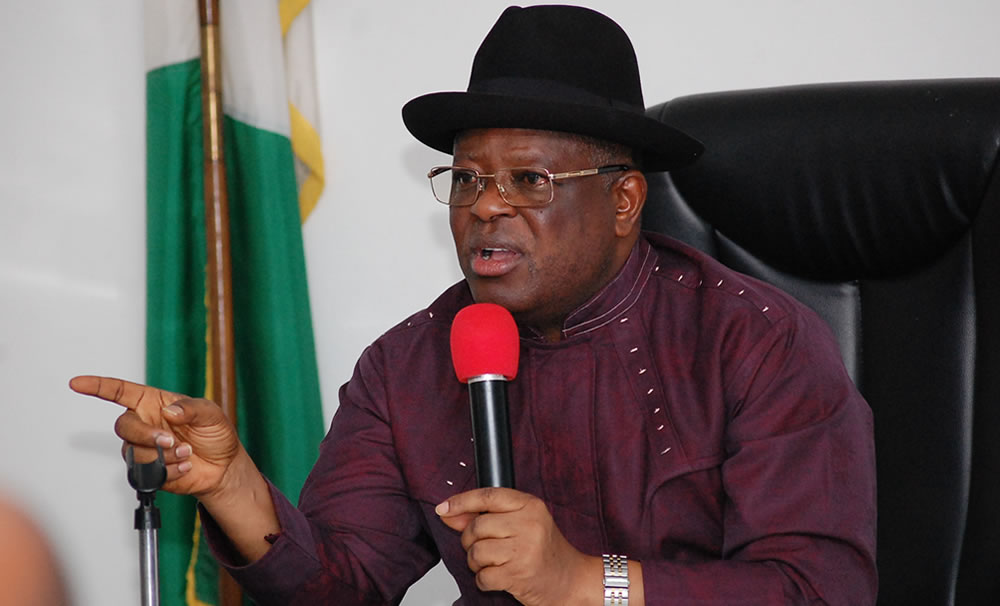Don’t Expect Joint Security Network For South-East States — Umahi
By Joyce Aroh
The Chairman of South-East Governors Forum and Governor of Ebonyi State, Dave Umahi, on Thursday, said there is no rationale for establishing a joint regional security network for the states in South East.
The governor who dismissed the possibility of contributing security personnel from different states that make up the region to form the South East Security Network added that what is obtainable in the region is a Joint Security Committee, JSC, whose personnel train other local security architectures at various states.
While explaining that the security challenges at the South East States are peculiar and should be handled with different approaches, he added that there would be no land for ranching as contained in the National Livestock Transformation Plan, NLTP, among the states in the region.
He made the statements while responding to questions during the Channels Tv breakfast programme ‘Sunrise Daily’.
“What we have in South East states in a Joint Security Committee which trains Neighbourhood Watch and the Vigilante groups or other local security architectures at different states in the region. If anybody tells you that there could be security personnel contributed from different states to form joint security for this region, it is not a possibility. It does not work even if the constitution permits it.
“Every state is peculiar and so is their security challenges. The problem is that those complaining about the lack of joint security for the South-East are not living in the region. They don’t have the knowledge of how security works in the region. “The governors of the South East States are comfortable with the different security architectures at various states because the personnel are working very well. There is the problem of insecurity in the region, but the issue is not peculiar to the region alone, it is a national problem.
“We are happy with what our local security personnel are doing at different stages. We are not God who assures 100% security but we are trying our best and this what our people want.
“You can even imagine that we form the joint security network and put them in Enugu State for instance if there is a problem at Ebonyi State which is about 200-300 kilometres away, and then you start mobilising to go to the place, or that we are contributing personnel and you deploy someone from Abia State to go to Enugu for instance, then why are we talking about state police? It is the same kind of arrangement.
‘Our local security architectures at different states know the terrain and the people very well and are given the opportunity to secure their environment and the people. That is the kind of arrangement we have in the South East,” he explained.
He also said that there is no much difference between the vigilantes and community policing, adding that the region will not allow the Police Service Commission to take care of the community policing.
The governor who insisted that community policing must be in the hands of the natives equally said “the advantage of community policing is that it has the impetus of the law to arrest and detain suspects, but in our case in South East, we also have the state law which is very good in doing this.
However, no section of the state laws will run contrary to federal laws.
“We rejected the template which the IGP brought to us at Enugu on community policing because it did not give the natives the power to control the community police. It is being restructured to give the traditional rulers and local government chairmen the power to control the system.”
The governor equally said that given the scarcity of land in the region, the states would not participate in the ranching arrangement of the NLTP.
He, however, said that the region embraced other forms of the programme.





